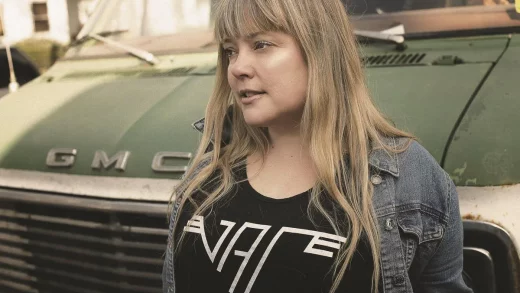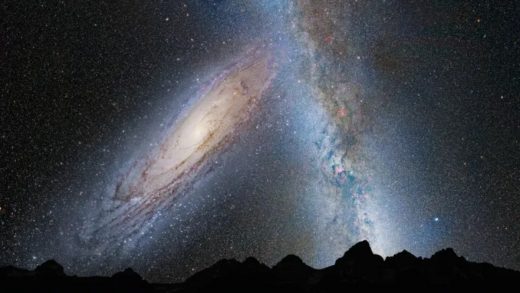:format(webp)/https://www.thestar.com/content/dam/thestar/entertainment/music/2023/05/12/singer-songwriter-seal-says-hes-crushing-life-at-60/seal.jpg)
Turning 60 can be a traumatic experience for some, but don’t count Grammy Award-winning singer and songwriter Seal among those who complain about aging.
“It’s a milestone and I love it. I love being 60!” enthused the man born Seal Henry Olusegun Olumide Adeola Samuel in Paddington, London, on Feb. 19, 1963.
In fact, Seal — who performs a pair of shows at Massey Hall on Monday and Tuesday — said he never thought he’d make it to his sixth decade.
“My Dad died quite young; he died at 53,” Seal explained recently over Zoom. “I never really saw myself getting to 60 … As far as I’m concerned, every day above ground is just a blessing and I live every day to the max as much as I possibly can.
“So it’s amazing, because I’m crushing it! I have a passion for tennis. I still have a passion for snowboarding. I have a great relationship with my kids! They’re all healthy! I have a great woman in my life. I have incredible friends and I’m fortunate to do the thing I love to do for a living for years. So 60’s fricking great!”
It’s been 33 years since the musician and portrait photographer broke into the British mainstream, topping the charts with “Killer” with producer Adamski, but it was his followup work with Trevor Horn that brought him to the rest of the world with 1991’s “Crazy.”
Official HD remastered music video for “Crazy” by Seal from the album Seal (1991).
Seal said he knew the slightly funky, keyboard-driven song was a hit the moment he wrote it.
“It was different enough; it sounded like me and no one else,” he recalled. “And I knew it hit — and when I say hit, I don’t mean it in the commercial sense, but in the literal sense of the word — like, it hit people to their soul. I knew that people could find themselves.”
Seal said his litmus test for determining whether he’s written a quality song is the observation of physical reaction.
“If you really want to know … if the record you’ve made is any good when you play it to people, don’t listen to what they tell you,” he advised. “Look at the effect it has on them. Because if you’re asking people to give their opinion of your music, it’s an unfair situation: you’re asking them to be honest and they will have a propensity to be considerate of your feelings. If it’s s–t, they’re not going to tell you.
“So when I played ‘Crazy’ to people I would see the effect it had on them. That’s how I knew.”
Sometimes, though, he has to be convinced that his material is worthy of merit. He’s on the record as declaring that he was initially “embarrassed by” “Kiss From a Rose,” the song from his second eponymously titled 1994 album that found commercial life as part of the “Batman Forever” soundtrack and won him three of his four Grammys.
He has since changed his tune.
“I’m just lucky enough to have a song of that magnitude,” Seal said. “And you can’t plan those things as an artist because a lot of it is luck. And I consider myself to be very lucky to have a song like that.”
Although he’s worked with a few Canadians in his time — Grammy winner David Foster, whom he calls “a genius,” produced three of his 10 albums — his biggest hits have been with Horn, the British-born production wunderkind whose innovative use of the Fairlight synthesizer ushered in a new sound when he incorporated orchestral sampling in his arrangements.
For reference, some of those gems include the albums “Lexicon of Love” by ABC; “Who’s Afraid (of the Art of Noise)” by Art of Noise; “Welcome to the Pleasuredome” by Frankie Goes to Hollywood; “Slave to the Rhythm” by Grace Jones and “A Secret Wish” by Propaganda.
The good news for Seal fans is that Horn is not only on tour with him, playing bass and serving as musical director, he is opening the show as part of his reincarnated the Buggles, of “Video Killed the Radio Star” fame.
“The biggest significance of this tour is playing with Trevor, to be honest,” Seal said. “Trevor and a bunch of great, great musicians that I started this with, (drummer) Earl Harvin and (keyboardist) Jamie Muhoberac.” There’s “an unspoken communication” between them that provides great chemistry both in studio and onstage, Seal added.
Seal is also thrilled to be returning to Canada to perform, noting that he almost established a home here.
“Canada’s just a great country to come to. The people are great and I just don’t say that because you’re Canadian, trust me: I had a house in Whistler and up until before I got married (to supermodel Heidi Klum, a marriage that lasted nine years), Whistler and Canada were actually going to become my home, and I was going to work out of there. But things didn’t work out like that.
“So coming to Canada, I feel like it’s almost a second home to me.”
Now that he’s taken 60 trips around the sun, Seal said the part of life that brings him the greatest satisfaction boils down to a single word: love.
“And I don’t mean my own personal love,” he clarified. “ I mean unilateral love, global love. When people love each other, when we show empathy through love. When love replaces hate and when it replaces anger and I see love in people’s faces. It’s like looking into a reflection: that’s what gives me the most happiness.”
He was also asked his opinion about artificial intelligence, which has recently been used to create music.
“I’m 100 per cent in favour of it,” Seal said. “It’s part of our natural evolution as a civilization. You can’t fight it; it’s futile. Why would you fight it? Why not try and understand it, and then work with it?”
He’s not wearing rose-coloured glasses regarding its potential for damage, however.
“Of course, there are huge cons to it,” he added. “I understand that. But then, ultimately, it’s a landmark of how we’ve evolved as a species. And if it is to be the end of us, if it’s to be the world’s end, we’re just living it out.
“But we always walk around like we’re under the assumption that we’re in control of everything. I don’t know if we’re as in control as we think. It is what it is and it’s brought us to this point.”
JOIN THE CONVERSATION
does not endorse these opinions.



